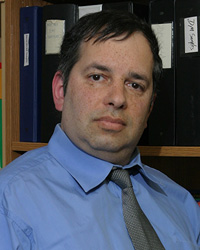Science Fiction Books, the Pandemic, and the Power of the Human Spirit
Guest blogger Robert W. Bly
An oft-used plot for science fiction books is humans endangered by some dire threat, how we battle the threat, and the result and outcome—easy to relate to the current COVID-19 pandemic. This theme is throughout some of the best post-apocalyptic books and dystopian novels.
L. Ron Hubbard’s Battlefield Earth reminds us of the power of the Human Spirit against all odds, including a sadistic alien invader on the order of a plague throughout the galaxy. While I cover how this relates to COVID-19 below, saving the best example for last, if you have not yet read this classic science fiction novel you can download the first 13 chapters or the first hour of the audiobook for free.
Sometimes the threat humans face is sentient alien invaders, such as in the H.G. Wells novel The War of the Worlds, in which Earth is invaded by Martians, or in the Tom Cruise movie, The Edge of Tomorrow.
In the movie Starship Troopers, inspired by Robert A. Heinlein’s novel, the aliens, giant and intelligent bugs, attack Earth remotely, from their planet, and so we have to take the fight to them.
Orson Scott Card’s novel Ender’s Game has a somewhat similar set-up, with humans destroying the homeworld of the Formics, a bug-like race with which we are in an interstellar war.
Other times we are our own worst enemy. The most common modes of self-destruction are nuclear war or pandemics produced by the use of biological weapons.
In the novel Deus Irae by Philip K. Dick and Roger Zelazny, nuclear war has destroyed much of the planet and its population. Atom bombs devastate Earth in many other SF works including Pat Frank’s Alas, Babylon and Nevil Shute’s On the Beach.
Sometimes the threat is of enormous proportions—literally: an asteroid, comet, meteor, or other heavenly body on a collision course with Earth.
In Arthur C. Clarke’s novel The Hammer of God, humans prevent a giant asteroid from striking the Earth by altering its trajectory. (However, it comes close enough—about 60 kilometers—to kill 100,000 people and cause $1 trillion in damage.)
And then there are enemies who are unseen, barely seen, or seen but not immediately identified as a danger.
In John Wyndham’s The Day of the Triffids, the strange threat is a species of venomous semi-sentient flowers that can uproot themselves and become mobile. A cosmic event has rendered most of humanity blind, making us an easy target for these killer plants.
In Stephen King’s novel The Stand, the plot centers on a pandemic of a weaponized strain of influenza that kills almost the entire world population—a prescient forewarning of the coronavirus pandemic.
In Michael Crichton’s novel The Andromeda Strain, an alien organism, capable of generating a nuclear reaction, enters Earth’s atmosphere. Fortunately, it migrates toward the upper atmosphere, where the lower oxygen levels suit it better, and the organism mutates into a benign form.
In L. Ron Hubbard’s novel Battlefield Earth, invading aliens—the Psychlos—take control of the Earth to plunder our planet’s natural resources, leaving a post-apocalyptic wasteland.
The Psychlos are a race of 9-foot-tall, 1,000-pound sci-fi aliens with technology far beyond our own, and an average life span of 190 years.
A wolf-like race, the Psychlos have fur, long razor-sharp claws, and physical strength far superior to ours.
The Psychlos have been the dominant species across multiple galaxies for hundreds of thousands of years.
With cruel arrogance, they have conquered thousands of planets to strip these worlds of their minerals and elements—in particular gold, which they value above all others.
The Psychlos were once nonviolent miners, but the catrists, their ruling class, made the workers warlike and cruel. And the Psychlos had no intention of asking humans for permission to mine Earth’s mineral deposits.
Instead, they take Earth’s most precious natural resources by force; killing most of humanity, leaving only a small band of human survivors.
The survival of Homo sapiens against a seemingly unstoppable alien enemy in some ways can be seen to parallel humankind’s battle against the coronavirus that we are fighting today.
In both Battlefield Earth and the reality on Earth in the year 2020, we are fighting for our lives against a deadly enemy.
L. Ron Hubbard believed humans have the courage, strength, and intelligence to combat and overcome any threat, whether giant monsters from outer space or new microbes that evolve naturally or are made in a laboratory.
In Battlefield Earth, the Psychlos cannot breathe our atmosphere. They wear canisters of a gas mixture they can breathe, just as a scuba diver wears an oxygen tank underwater.
Jonnie Goodboy Tyler, the hero of Battlefield Earth, releases some of the Psychlo breathe-gas in a radioactive area—and the radiation causes the gas to explode.
Then Jonnie finds a small sample of uranium, and when it comes into direct contact with Psychlo breathe-gas, he makes an amazing discovery: the pure uranium explodes the gas with incredible force.
From gaining this knowledge, Jonnie and a small band of survivors devise a plan to defeat the Psychlos using uranium against them.
As Mr. Hubbard, explained,
“Battlefield Earth is a statement about the human condition and the human spirit.”
“In Battlefield Earth, there is an advanced technology but it is the technology of the aliens who have conquered Earth and virtually wiped out humanity. Pitted against this is the Human Spirit … [and] the Human Spirit prevails.”
If he were alive today, Mr. Hubbard would, I believe, be optimistic about the Human Spirit prevailing against the coronavirus. We’ve already survived horrific World Wars and many previous pandemics. As he also wrote,
“Man can survive. That is the story.”
The COVID-19 pandemic has been predicted to be one of the worst disasters in human history. L. Ron Hubbard believed the Human Spirit can overcome any danger, disaster, or threat to us and our planet.
So far, he has been proven right—and rest assured, he will be in the case of COVID-19, too.
If you have not yet read it, don’t forget to download the first 13 chapters or listen to the first hour. Warning: once you start, you won’t want to put it down.
Robert Bly holds a BS in chemical engineering and has been a full-time freelance writer since 1982. His more than 100 books include The Ultimate Unauthorized Star Trek Quiz Book (HarperCollins), The Science in Science Fiction (BenBella), and a collection of science fiction short stories Freak Show of the Gods and Other Tales of the Bizarre (Quill Driver Books). Bob has written over 100 articles for publications including Cosmopolitan, City Paper, Writer’s Digest, The Record, and Target Marketing. His Sci-Fi web site is www.sciencefictionprediction.com
Other articles and resources you may be interested in:
COVID19 Prevention Resource Center
Get your copy of Battlefield Earth
Listen to the unabridged cinematic-style audiobook
Download the book club discussion questions




Leave a Reply
Want to join the discussion?Feel free to contribute!